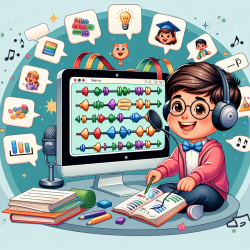In the field of special education, staying informed about the latest research and methodologies is essential for effective practice. The article "Creative (Canadian) Communication" by Elisabeth P. Brandt, published in 1973, offers valuable insights into the development of language arts and communication skills. This blog aims to distill key outcomes from the research to help practitioners enhance their skills and encourage further exploration of the topic.
Key Insights from "Creative (Canadian) Communication"
The research emphasizes the holistic development of language skills, focusing on their use as tools for creative expression and communication rather than as isolated goals. Here are some key takeaways:
- Non-verbal Communication: The foundation of communication starts with non-verbal cues. Practitioners should incorporate activities that enhance students' ability to understand and use non-verbal signals effectively.
- Speech and Language Development: Understanding the stages of speech and language development in infants is crucial. This knowledge can guide the creation of age-appropriate interventions and support in the classroom.
- Listening Skills: Developing strong listening skills is a cornerstone of effective communication. Techniques such as active listening exercises and auditory discrimination activities can be beneficial.
- Speech Disorders: Early identification and intervention are critical. Contrary to the book's recommendation of delaying professional attention until the second grade, it is advisable to refer children with articulation problems to a speech pathologist as early as kindergarten.
- Expression in Writing: Encouraging students to express themselves through writing can significantly enhance their communication skills. Activities that integrate creative writing, journaling, and storytelling can be particularly effective.
- Linguistics and Grammar: A solid understanding of linguistics and grammar supports the development of clear and effective communication. Integrating these elements into daily lessons can help students grasp the nuances of language.
- Reading Skills: Developing reading skills is essential for overall academic success. Techniques such as guided reading, phonics instruction, and reading comprehension exercises can be incorporated into the curriculum.
- Enjoying Literature: Engaging students with literature through activities like choral speaking and creative dramatics can foster a love for reading and enhance their language skills.
Implementing the Research in Practice
To effectively implement the insights from "Creative (Canadian) Communication," practitioners can take the following steps:
- Incorporate Non-verbal Communication Activities: Use games and role-playing exercises to help students understand and use non-verbal cues.
- Develop Age-appropriate Interventions: Tailor interventions to the developmental stages of speech and language in infants and young children.
- Enhance Listening Skills: Integrate active listening exercises and auditory discrimination activities into daily lessons.
- Early Intervention for Speech Disorders: Refer children with articulation problems to a speech pathologist as early as possible.
- Encourage Creative Writing: Use journaling, storytelling, and creative writing exercises to help students express themselves.
- Teach Linguistics and Grammar: Integrate linguistics and grammar lessons into the curriculum to support clear communication.
- Develop Reading Skills: Use guided reading, phonics instruction, and reading comprehension exercises to enhance students' reading abilities.
- Engage with Literature: Use choral speaking and creative dramatics to make literature enjoyable and engaging for students.
Encouraging Further Research
While the insights from "Creative (Canadian) Communication" are valuable, ongoing research and continuous learning are crucial for staying updated with the latest methodologies and best practices. Practitioners are encouraged to explore further research in the field of communication and language arts to enhance their skills and improve student outcomes.
To read the original research paper, please follow this link: Creative (Canadian) Communication.










